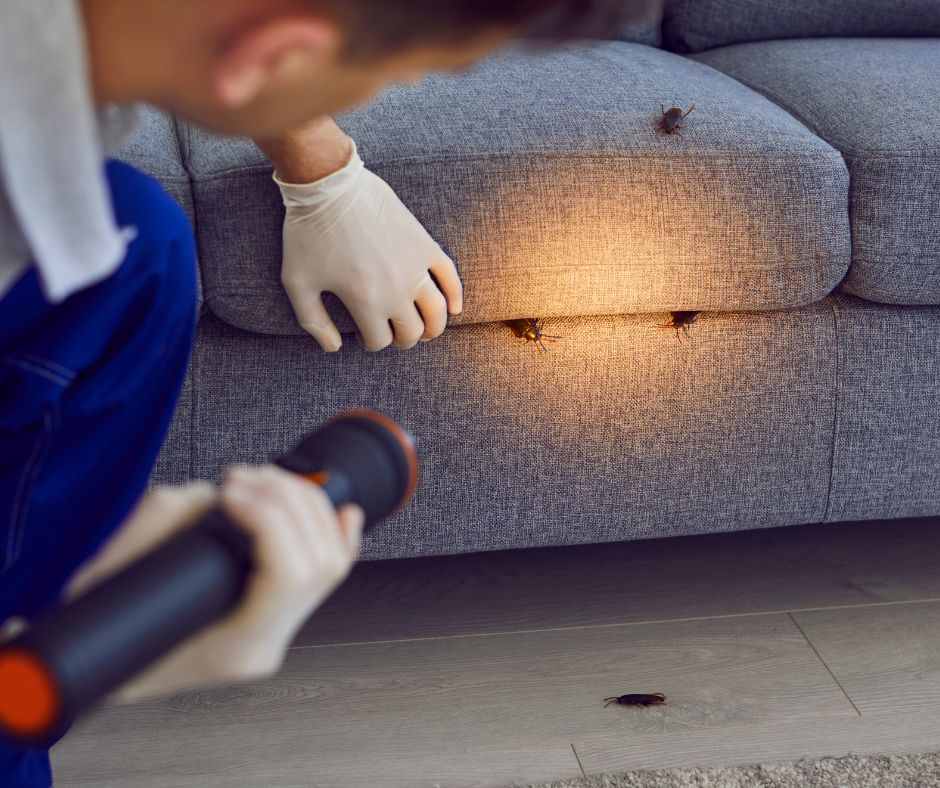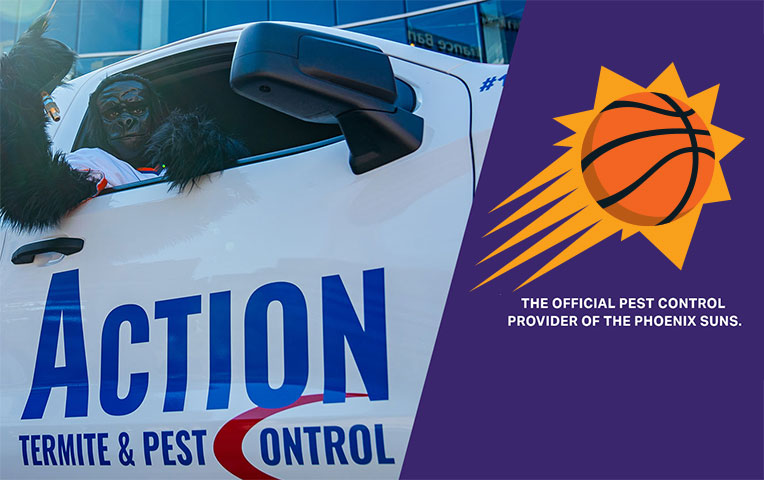Ant Exterminator Near Me: How to Exterminate Ants Quickly and Efficiently
Discover the most recent Advancements in Parasite Control and Exactly How to Execute Efficient Treatment Solutions
Over the last few years, the area of insect control has witnessed substantial advancements, driven by the demand for effective and sustainable treatment remedies. Cutting-edge techniques such as Integrated Insect Administration (IPM) integrate environmentally friendly experiment advanced technology, enhancing both efficacy and ecological duty. The assimilation of smart modern technologies and Do it yourself methods has encouraged people to deal with bug issues more efficiently. As we discover these advancements, it comes to be crucial to recognize exactly how best to execute these approaches in numerous setups to achieve optimum outcomes. The effects for parasite administration methods might be transformative.
Eco-Friendly Insect Control Options
In recent times, the need for eco-friendly bug control options has surged as house owners and businesses alike seek lasting alternatives to traditional chemical therapies. This shift is driven by growing ecological awareness and a need to decrease the health and wellness threats connected with synthetic chemicals.

Environmentally friendly bug control approaches include a range of strategies that prioritize making use of all-natural compounds and practices. Integrated Bug Monitoring (IPM) is one such technique, incorporating biological, social, and mechanical techniques to manage bug populaces while decreasing reliance on chemicals (Wildlife removal services). This all natural approach emphasizes avoidance via environment adjustment and the introduction of natural predators, thereby fostering a balanced environment
One more prominent option is the usage of organic chemicals originated from plants, which have a tendency to be less dangerous to non-target organisms. Products like neem oil and diatomaceous planet have acquired grip for their effectiveness in controlling parasites while posing minimal dangers to human health and wellness and the environment.
Furthermore, exemption techniques, such as securing entry points and preserving cleanliness, play a critical duty in eco-friendly bug administration. By embracing these lasting practices, businesses and individuals can properly manage pests while promoting a much healthier earth for future generations.
Smart Modern Technology in Insect Monitoring
Technology is reshaping the landscape of parasite management, with smart technology becoming a pivotal pressure in improving efficiency and performance - Wildlife removal services. The combination of Net of Things (IoT) gadgets, expert system (AI), and information analytics is revolutionizing how pest control professionals come close to infestations
Smart traps equipped with sensing units can detect parasite task in real-time, sending out immediate notifies to operators. This enables for prompt actions, decreasing damage and lowering the demand for substantial treatments. In addition, AI formulas evaluate historic information to predict parasite behavior, enabling proactive interventions based on ecological conditions and infestation patterns.
Drones and automated vehicles are likewise playing a significant duty in bug management, supplying aerial evaluations of huge locations, identifying hotspots, and even distributing targeted treatments. These modern technologies not only simplify procedures but additionally enhance security by limiting human exposure to potentially dangerous chemicals.
Moreover, mobile applications empower customers to check pest activity and access specialist advice, cultivating a collaborative technique to pest administration. Overall, the fostering of wise innovation is establishing a brand-new standard in pest control, emphasizing data-driven decisions and lasting techniques that ultimately benefit both specialists and home owners alike.
Integrated Parasite Administration Strategies
Integrated Pest Administration (IPM) utilizes an all natural strategy to pest control, integrating various approaches to effectively manage parasite populaces while lessening risks to human health and the environment. IPM focuses on understanding the pest life cycle, their all-natural adversaries, and the environment in which they thrive.
One of the basic elements of IPM is keeping an eye on pest populaces via routine examinations and information collection. This enables the identification of pest limits, identifying when treatment is required. Social methods, such as plant habitat, rotation, and hygiene adjustment, are vital in reducing bug prevalence and advertising plant health.
Mechanical controls, including obstacles and traps, are likewise vital in IPM. These methods can physically remove or deter bugs without making use of chemicals. When required, the judicious application of chemical controls is utilized, focusing on targeted treatments that reduce ecological influence.
Education and cooperation among stakeholders, including farmers, pest control specialists, and the neighborhood, are vital for the effective implementation of IPM strategies. By focusing on lasting methods, IPM not only addresses pest problems however also fosters a much healthier environment.
Biological Control Approaches
Countless organic control methods are significantly recognized for their effectiveness in managing parasite populations while advertising environmental equilibrium. These techniques harness natural killers, parasites, and microorganisms to minimize pest numbers without counting on synthetic chemicals. The introduction of ladybugs can effectively manage aphid populations, while nematodes target soil-dwelling pest larvae.
In addition, making use of microbial pesticides, such as Bacillus thuringiensis (Bt), gives an eco-friendly alternative for managing caterpillar insects. These items specifically target pest species, minimizing damage to valuable pests and pollinators. Additionally, preservation biological control emphasizes boosting environments for natural enemies, such as birds and advantageous insects, thereby urging their presence in farming systems.
Research study proceeds to disclose cutting-edge methods within this field, such as using scents to interfere with pest breeding patterns or the advancement of biocontrol agents via genetic modification. Carrying out these techniques can lead to sustainable insect management methods that alleviate the dependence on chemical treatments, ultimately fostering much healthier ecosystems. As recognition of these strategies grows, they are ending up being important components of incorporated bug administration (IPM) techniques, using a balance in between efficient pest control and ecological stewardship.
DIY Insect Control Solutions
As home owners seek reliable methods to tackle bug problems, DIY pest control remedies have actually obtained appeal for their availability best site and cost-effectiveness. These methods empower people to resolve infestations using easily available products and strategies, frequently without the need for expert intervention.

Furthermore, keeping proper hygiene and routine assessments can stop parasite access and nesting (Wildlife removal services). Straightforward techniques, such as securing fractures, eliminating food resources, and decluttering, can dramatically lessen bug populations. Traps, both homemade and commercially readily available, can additionally use reliable solutions for surveillance and regulating specific insects like insects or rats

Verdict
The integration of eco-friendly insect control options, wise technology, and ingenious monitoring approaches presents a detailed method to reliable pest management. By accepting Integrated Insect Administration (IPM) and using biological control techniques, alongside DIY solutions, lasting and accountable parasite control can be achieved.
Eco-friendly pest control approaches include an array of techniques that focus on the use of natural compounds and techniques. Integrated Insect Management (IPM) is one such strategy, integrating organic, social, visit this web-site and mechanical methods to handle insect populations while decreasing reliance on chemicals. As understanding of these techniques expands, they are ending up being indispensable parts of incorporated insect monitoring (IPM) methods, supplying a balance in between efficient insect control and ecological stewardship.
The assimilation of eco-friendly insect control alternatives, clever modern technology, and cutting-edge monitoring approaches provides a comprehensive method to reliable bug administration. By welcoming Integrated Bug Administration (IPM) and using biological control approaches, along with Do it yourself solutions, sustainable and responsible insect control can be attained.